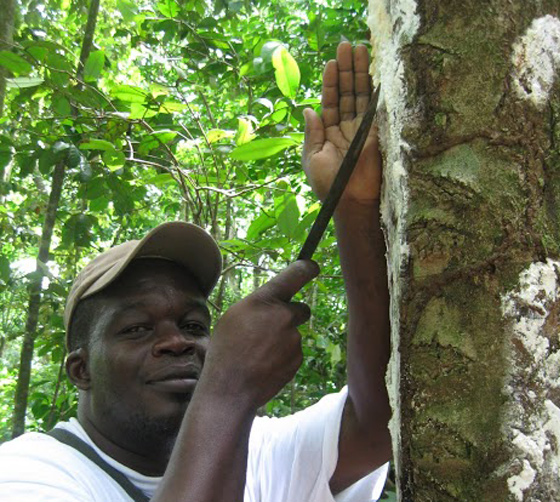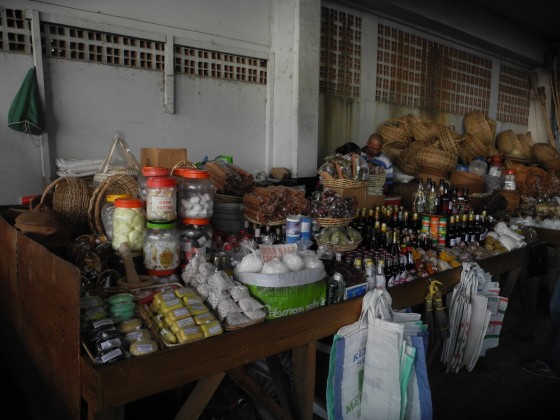The lansan tree (Protium attenuatum) has all but disappeared from much of its range in Windward Islands (Eastern Caribbean). However recent surveys indicate that this small country currently holds the largest remaining population.
The lansan tree produces a valuable white resin used for incense burning in church ceremonies and at home. Its production is also of high economic significance to local harvesters and traders. Resin is harvested by making cuts to the tree’s bark and is then sold to local and international markets.
Monitoring of more than 380 trees has revealed that traditional tapping methods are extremely detrimental to health of the trees, causing infection, rotting and termite infestation.
In areas that have been heavily exploited by tappers, even non-tapped trees show abnormally high rates of infection and decay, suggesting that traditional tapping methods facilitate disease transmission.

Adams Touissaint demonstrating tapping of a lansan tree (credit: Jenny Daltry/FFI).
The Global Trees Campaign is supporting the Government of Saint Lucia, Ministry of Agriculture, Food Production and Rural Development to sustainably manage lansan tree populations by influencing various aspects of tapping and resin trade, from harvesting methods to addressing consumer demand.
Saint Lucian forestry staff and volunteers have carried out innovative research leading to the breakthrough discovery of a more productive method of extracting resin that does not harm the sensitive lansan trees. This new method will be beneficial to both tappers, and the trees themselves.
The Forestry Department is training local resin tappers to use this technology, so they can make a sustainable living from harvesting this culturally important resource without endangering either this species or its rainforest habitat.
The team has created a sustainable management plan for lansan trees in Saint Lucia. This includes a nationwide system to regulate the sustainable use and trade of the lansan resin through a certification scheme for lansan sellers. This plan has now been absorbed as a flagship project into a wider 5 Year National Plan for St. Lucia’s forests.

Market place in Saint Lucia selling lansan resin (credit: Jenny Daltry/FFI)